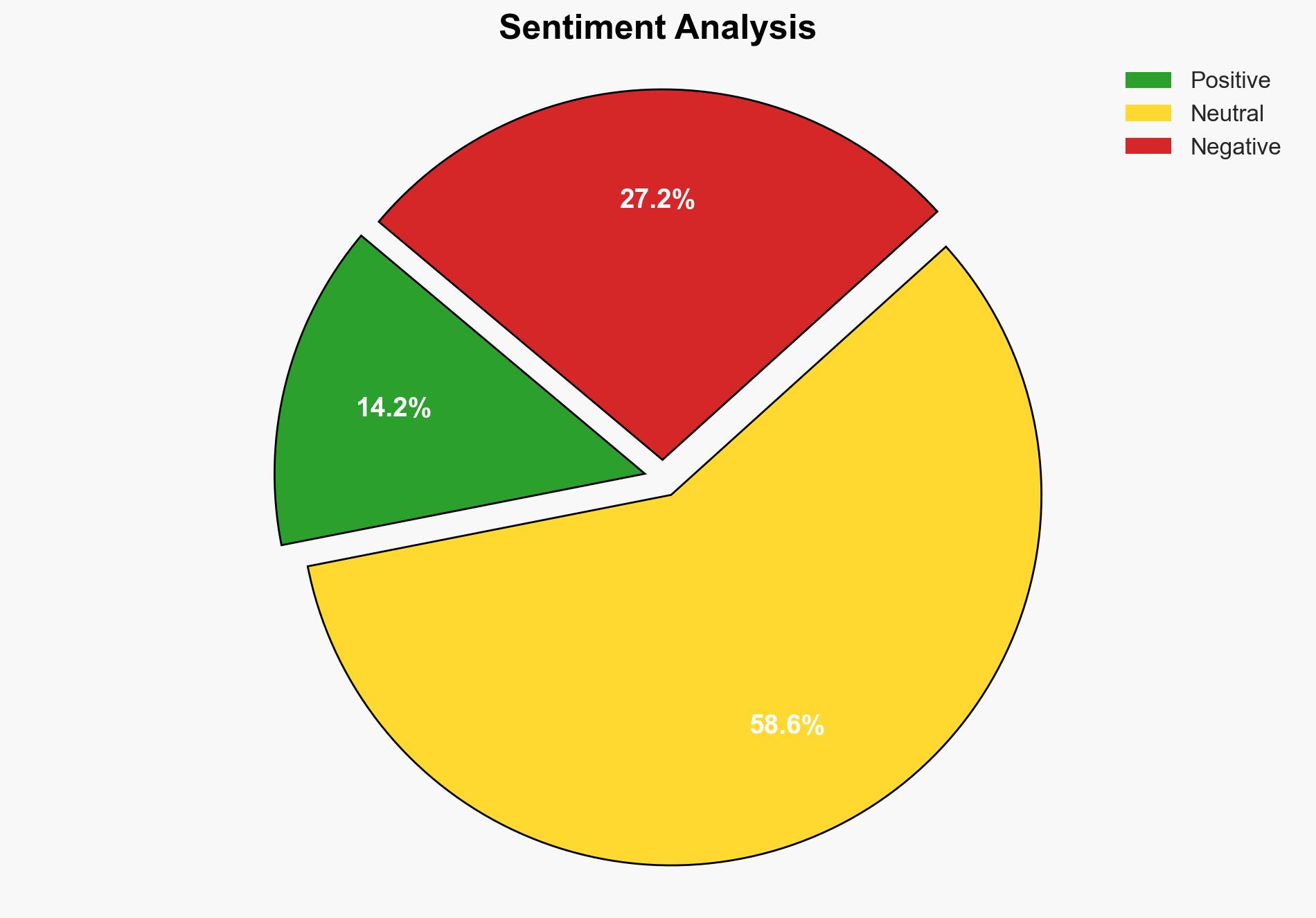‘Naked struggle for power and resources’ leaves civilians paying unbearable price UN human rights chief – Globalsecurity.org
Published on: 2025-03-04
Intelligence Report: ‘Naked struggle for power and resources’ leaves civilians paying unbearable price UN human rights chief – Globalsecurity.org
1. BLUF (Bottom Line Up Front)
The ongoing global conflicts in regions such as the Democratic Republic of the Congo, Gaza, Sudan, and Ukraine are resulting in severe humanitarian crises. The international community is urged to uphold fundamental freedoms and support inclusive dialogues to transition towards civilian-led governance. The conflicts are exacerbated by the involvement of external powers and the circumvention of international sanctions, leading to increased civilian casualties and humanitarian worker fatalities.
2. Detailed Analysis
The following structured analytic techniques have been applied for this analysis:
SWOT Analysis
Strengths: International awareness and condemnation of human rights violations.
Weaknesses: Limited enforcement of international norms and sanctions.
Opportunities: Potential for diplomatic resolutions and peace negotiations.
Threats: Escalation of conflicts and regional instability.
Cross-Impact Matrix
The conflicts in Ukraine and Gaza have significant cross-regional impacts, influencing neighboring countries’ security and economic conditions. The flow of weapons and humanitarian aid is affected by geopolitical alliances and sanctions.
Scenario Generation
Scenario 1: Successful peace negotiations lead to a reduction in hostilities and improved humanitarian conditions.
Scenario 2: Continued escalation results in broader regional conflicts and increased international involvement.
Scenario 3: Stalemate in negotiations prolongs the humanitarian crises, with ongoing civilian casualties.
3. Implications and Strategic Risks
The persistence of these conflicts poses significant risks to national security, regional stability, and global economic interests. The humanitarian toll is immense, with increased displacement, famine, and human rights abuses. The potential for regional spillover effects threatens broader geopolitical stability.
4. Recommendations and Outlook
Recommendations:
- Enhance international diplomatic efforts to mediate peace talks and enforce ceasefires.
- Strengthen international sanctions and monitoring to prevent the flow of weapons and support to conflict zones.
- Increase humanitarian aid and ensure safe access for aid workers to affected regions.
Outlook:
Best-case scenario: Diplomatic resolutions are achieved, leading to a decrease in hostilities and improved humanitarian conditions.
Worst-case scenario: Continued escalation and international involvement result in broader conflicts and increased civilian suffering.
Most likely scenario: Protracted conflicts with intermittent peace efforts and ongoing humanitarian challenges.
5. Key Individuals and Entities
The report mentions significant individuals and organizations, including Volker Trk, Tom Fletcher, and entities involved in the conflicts. Their roles in the ongoing situations are pivotal to understanding the dynamics of the crises.





